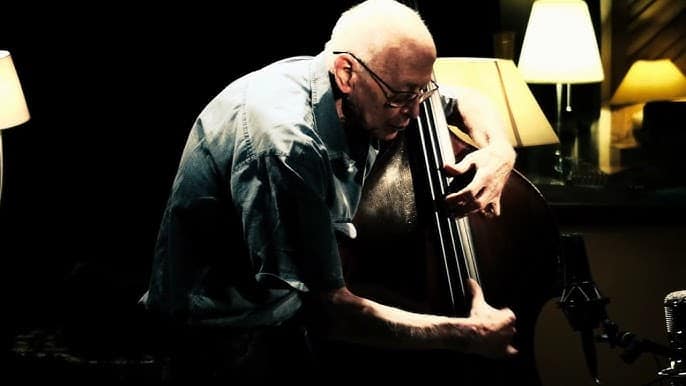Conductor dies during funeral march – an update and a warning
main
norman lebrecht
January 16, 2011
The late Herbert von Karajan, terrified of dying on the job, commissioned research at Salzburg University on the effects of stress on music making. His particular concern was that Felix Mottl and Joseph Keilberth had collapsed and died at exactly the same spot in the third act of Tristan und Isolde (see The Maestro Myth, 130-1).
In addition to these misfortunes, Dmitri Mitropoulos died while rehearsing Mahler’s third symphony at La Scala, Giuseppe Sinopoli died during Aida in Berlin and Mariss Jansons near-as died at the end of La Boheme in Oslo. Only the adjacency of a good hospital restored his heart function.
The research that Karajan commissioned at Salzburg has not, to my knowledge, been published (if it has, please let me know). But there do seem to be sufficient instances connecting podium exertions and cardiac infarction to warrant further scientific study.





Norman,
Yet what a way to go! In any case there are bits of Aida which are lethal anyway.
But I don’t find any of this at all surprising. In my time in the House of Lords, I have attended five peers who collapsed immediately after (or towards the end of) a speech. Two others died when I was not in the Chamber and it is probably that most of these instances were stress (rather than mere physical exertion) causing cardiac arrest or ventricular fibrillation.
There should, of course be a defibrillator in every concert hall and opera house – but I suspect this will not happen because managers will not want to be legally responsible for any member of the audience who finds the final movement of Beethoven’s Ninth or the last Act of Tristan too much for them.
Best wishes
Robert
Robert
I suspect the Lords were older and a good deal less fit than these conductors. And I do hope you saved one or two. Isn’t that why they elevate MDs to the ermine?
best
Norman
It’s a very high-stress profession with a lot of responsibilities. The stress, frequent travel and odd hours certainly contribute to poor health habits. For example, even as a kid I noticed how Leonard Bernstein chain-smoked through TV interviews; while he didn’t die on the podium, he died due to heart and lung problems and didn’t live to an advanced age. Others have had problems with weight, alcohol or drug abuse. The baton is not a talisman against stress, illness and death, and those who use it are not guaranteed the lifespans of a Toscanini or a Monteux. As romantic as the notion of death on the podium may seem, there’s nothing glamorous about it, especially for the loved ones these conductors leave behind. Those in this high-pressure job need to manage schedules and stress, and to do what is necessary to stay healthy. We don’t need more conductors “dying doing what they love”–we need them to take care of themselves so that they can have good lives and serve their art for as long as possible.
Personally, since we have to shuffle off this mortal coil one way or another, I wouldn’t mind dying on the (conducting) job. There’s something appealing about the thought. But then there is all the stress one would be causing to others….
Regarding Karajan’s research, I doubt that it included data on weedy baroqueniks conducting from the keyboard, or lute. Maybe working seated, and at A=415, improves longevity. We’ll have to wait a few more years to test that hypothesis.
NL replies: But dear Joel, the weedy baroquenik thrives and jives while old Herb Karajan is a-mouldering in his grave.
The defibrillator comment is interesting. In many places here in the USA, it is legally required to have defibrillators in certain public buildings, and to have an employee on duty who is trained their use. New York State, where I live, has required them in all places of public assembly since 2006. For example, I believe they have one in the Mulroy Civic Center in Syracuse, where performances of the Syracuse Symphony, Syracuse Opera and many musical and theatrical groups take place. Thus, at least in New York, it appears theater managers might get into serious trouble if they don’t make them available. More information about U.S. requirements at:
http://www.ncsl.org/default.aspx?tabid=14506
The price of defibrillators has gone down considerably in recent years, so that the cost is certainly no longer prohibitive (c. $1,000 USD).
I’ve always heard that orchestra conductors lived longer lives — here’s at least one small bit of “proof:”
http://www.amazon.com/Orchestra-Conductors-Secret-Health-Long/dp/0471346934
Waving the wand around IS seriously good upper body CV exercise.
MPS
“NL replies: But dear Joel, the weedy baroquenik thrives and jives while old Herb Karajan is a-mouldering in his grave.”
I am tempted to say that we thrive and jive because we avoided poisonous fascist ideology in our youth….but that would be stretching the truth. Even freedom-fighters and sagacious Jews at 392 get heart attacks.
I remember years ago reading about a heart doctor who advised a patient who had heart problems to exercise by “conducting” recordings in an attempt to combine serious lengthy exercise with the patient’s specific interests.